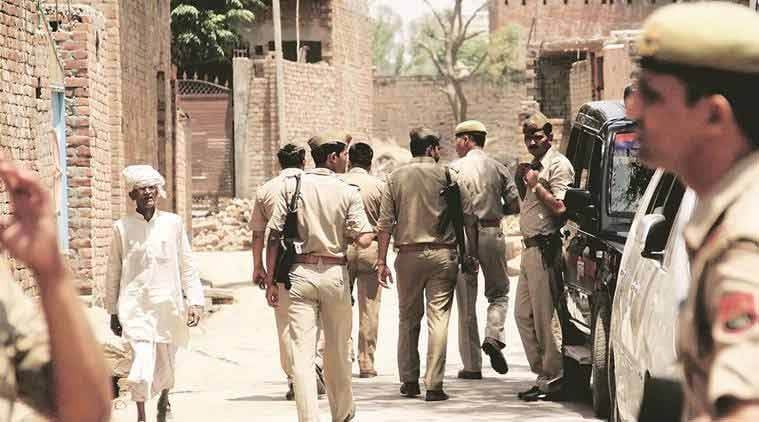 Over the past decade, the closest figure to this was in 2014 – 8,415 cases – during the tenure of the previous BJP government.
Over the past decade, the closest figure to this was in 2014 – 8,415 cases – during the tenure of the previous BJP government.
In 2019, the number of cases registered pertaining to atrocities against members of the Scheduled Castes and Scheduled Tribes (SCs/STs) in Rajasthan was the highest in 10 years, data from the state police reveals.
According to police data, in 2019, a total of 8,591 cases pertaining to atrocities against SCs/STs were registered in Rajasthan. Over the past decade, the closest figure to this was in 2014 – 8,415 cases – during the tenure of the previous BJP government.
Recently, in Nagaur district, two Dalit youths were allegedly assaulted on suspicion of theft, and a screwdriver was allegedly inserted in the anus of one of them. The state government has drawn sharp criticism over the issue, with the opposition BJP alleging that the law-and-order situation in the state has steadily deteriorated ever since the Congress came to power in December 2018.
The police data suggests that there was a 50.67 per cent increase in atrocities against SCs/STs in 2019 as compared to 2018, when the total number of cases was 5,702. The data also reveals a 47.47 per cent increase in crimes against Dalits.
The state also saw an overall increase in the total number of IPC cases registered in 2019, with the crime rate increasing by 31.08 per cent in comparison with 2018. The total IPC crime cases registered in 2019 were 2,25,306 which was must higher than 1,71,889 cases in 2019.
The police maintains that the increase in the number of cases of atrocities against SCs/STs and the overall increase in crime rate is because of the police department’s initiative of registering every FIRs to ensure that nobody returns from the police station with his grievance not being heard.
“Registration of FIRs takes a lot of paperwork and it means that a case will reach the court. Earlier, many police officials were reluctant to lodge FIRs and would simply take a complaint. But now, there is a clear message from the government that every person coming to the police station with a grievance should be heard and FIRs have to be registered. A person can also go to the SP office and register his FIR there if he is refused by the police station and the SP can also take action against such SHOs who are reluctant to register FIRs. This explains the increase in total number of cases. It is a conscious policy of the government that nobody’s grievance is left unheard. It used to be especially difficult for people from the SC/ST demographic or underprivileged sections of the society to lodge FIRs but now everybody is being heard,” said Ravi Prakash Meharda, Additional Director General of Police, civil rights and anti-human trafficking, Rajasthan.
He added that the police department is also minutely monitoring cases of atrocities against the SC/ST demographic.
According to the Rajasthan Police, 51 per cent cases of atrocities against SCs and 50 per cent cases of atrocities against STs were found to be false.
Activists have expressed concern over increasing number of cases against the weaker sections of the society in the state and have raised questions over the functioning of the police.
“The police are already bound to register FIR whenever a cognisable offence is reported to it and there are also Supreme Court guidelines on it. The logic that the increase in crimes against the SC/ST population is only because more FIRs are being registered doesn’t seem correct. In many cases, we see that the police are not following the necessary guidelines such as providing protection to the victims and ensuring their rehabilitation. Had the Nagaur incident been not highlighted over social media and media, it may not have come to light. Many such cases never come to light and often the police stand with the accused in such cases,” said Satish Kumar, director, Centre for Dalit Rights.